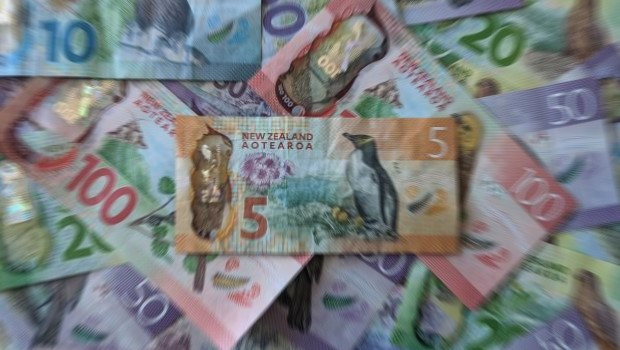Asia report: Stocks rise as RBNZ hikes rates again

Stock markets in Asia were mostly higher on Wednesday, as New Zealand’s central bank hiked interest rates, and data from Japan and Australia buoyed sentiment.
In Japan, the Nikkei 225 was up 1.23% at 29,222.77, as the yen weakened 0.45% against the dollar to last trade at JPY 134.83.
Automation specialist Fanuc was down 0.71%, while fashion firm Fast Retailing rose 2.47% and technology conglomerate SoftBank Group was ahead 0.94%.
The broader Topix index was 0.78% firmer by the end of trading in Tokyo, settling at 1,997.42.
Fresh data out of Tokyo showed a 19% improvement in exports year-on-year in July, underpinned by a recovery in vehicle exports.
The reading was better than the 18.2% rise pencilled in by analysts polled by Refinitiv.
Imports, meanwhile, rocketed 47.2% year-on-year, boosted by rising prices for crude oil and liquefied natural gas.
“We still expect Japanese exports to slow further in the months ahead,” said Craig Botham at Pantheon Macroeconomics.
“The bounce in car exports, in particular, looks unsustainable, and more to do with catching up from the declines prior, with perhaps some impact from China’s car purchase subsidies, which have already seemingly run out of steam.”
On the mainland, the Shanghai Composite was 0.45% firmer at 3,292.53, and the technology-heavy Shenzhen Component was ahead 1% at 12,595.46.
South Korea’s Kospi was the region’s odd one out losing 0.67% to 2,516.47, while the Hang Seng Index in Hong Kong rose 0.46% to 19,922.45.
Chinese e-commerce and food delivery giant Meituan rebounded 3.34% in the special administrative region, after plummeting 9% on Tuesday on the news Tencent was planning to sell down its $24bn holding.
Tencent Holdings itself managed gains of 0.07% on Wednesday, ahead of its second-quarter earnings report.
The blue-chip technology stocks were on the back foot in Seoul, with Samsung Electronics down 0.98% and SK Hynix losing 0.1%.
Oil prices were higher at the end of the Asian day, with Brent crude futures last up 0.93% on ICE at $93.20 per barrel, and the NYMEX quote for West Texas Intermediate rising 1.06% at $87.45.
In Australia, the S&P/ASX 200 added 0.31% to 7,127.70, as wage growth in the sunburnt country reached its strongest level since 2014.
According to the Australian Bureau of Statistics, wages rose 2.6% in the last quarter, up from 2.4% in the prior three months, though it was still well behind the latest inflation reading of 6.1%.
Across the Tasman Sea, New Zealand’s S&P/NZX 50 eked out gains of 0.05% to 11,852.93, as the country’s central bank sated market expectations by adding another 50 basis points to interest rates.
The Reserve Bank of New Zealand took its official cash rate to 3%, and signalled further rises were in the pipeline to take it to a possible 4.1% by early 2023.
“The committee agreed it remains appropriate to continue to tighten monetary conditions at pace to maintain price stability and contribute to maximum sustainable employment,” RBNZ’s Monetary Policy Committee said in its statement.
“Core consumer price inflation remains too high and labour resources remain scarce.”
The down under dollars were both weaker against the greenback, with the Aussie last off 0.84% at AUD 1.4361, and the Kiwi retreating 0.56% to NZD 1.5847.
Reporting by Josh White at Sharecast.com.